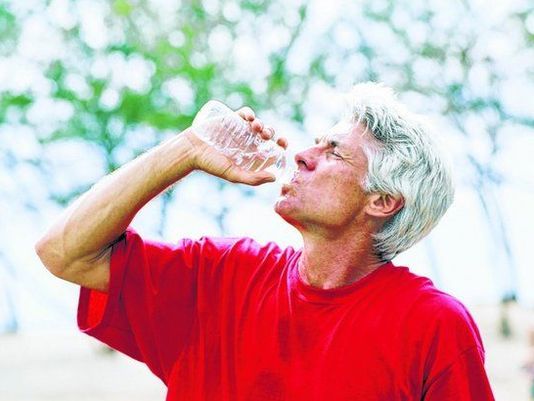Staying Cool in the Summer: How Seniors Can Avoid Heat Stroke

Older adults are more susceptible to heat stroke. Seniors’ bodies aren’t as sensitive to temperature changes and have a more difficult time adjusting, especially if taking beta blockers or medications that contribute to dehydration. In 2016, 50 percent of heat-related deaths occurred in those aged 60 to 89. It’s a health hazard you should know about, from the signs and symptoms to how to prevent heat stroke in the first place. It could save your life!
What Is Heat Stroke?
Heat stroke is when the body’s temperature control system fails, usually due to lengthy exposure to high temperatures combined with dehydration. When the core body temperature reaches 104 degrees Fahrenheit, heat stroke can begin to damage the brain and other internal organs. It’s vital to receive medical treatment right away, or else heat stroke can cause lasting injury, even death.
Know the Symptoms
Typically, the first sign of heat stroke is fainting. You could also develop a severe headache, dizziness, nausea, muscle cramps or weakness. Your heart will beat rapidly. You may develop shallow breathing. There could be signs of disorientation and confusion, as well as seizures or unconsciousness.
Know Your Risk
If you are older, drink an excessive amount of alcohol and take dehydrating medications, your risk for heat stroke is high. Living in a home with no air conditioning also increases your risk. If you have a chronic health condition like diabetes, you’re also at high risk.
Prepare Your Home
Watch the weather – if the heat index reaches 90 degrees, it’s time to turn on the air conditioner. If your home gets a significant amount of direct sunlight, try hanging solar shades to block UV-rays and prevent the home from heating up. In the hottest part of the day, stay on the ground floor. Heat rises, and so will the temperature upstairs
Prepare Your Body
Even if you don’t feel thirsty, hot weather calls for water, lots of water. Staying hydrated is one of your best defenses against heat stroke. You should also make sure to wear powerful sunscreen when you go outdoors, along with a hat and sunglasses to guard your body from UV-rays. Wear loose, breathable clothing to help you stay cool, and avoid direct sunlight during the warmest part of the day. Choose a shady spot to sit or go inside until it cools down.
You should enjoy hot summer weather to the fullest, but remember to stay aware of the signs and symptoms of this serious health condition and to get emergency medical help right away if you need it!
Are you covered for medical emergencies like heat stroke? Talk to the team at My Senior Health Plan to make sure your healthcare coverage will protect you.
- How Medicare Advantage Plans Cover Seniors’ Vision, Hearing, and Dental Needs - October 29, 2024
- 2025 Medicare Part D Changes: How to Save on Prescriptions - October 25, 2024
- Everything You Need to Know About the 2025 Medicare Changes and How They Affect You - October 21, 2024

